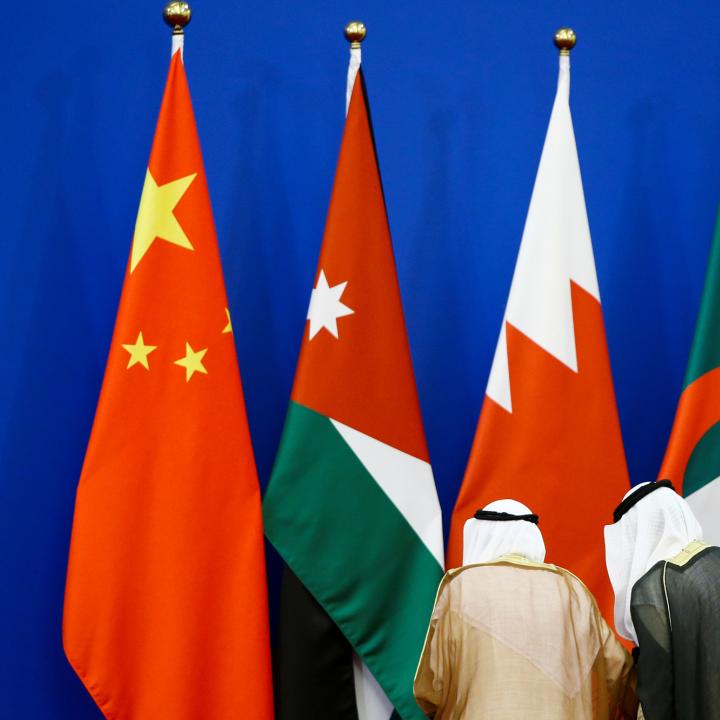This week, Beijing is hosting senior representatives from several Arab countries for another meeting of the China-Arab States Cooperation Forum (CASCF), marking twenty years since the event was first held in Cairo. President Xi Jinping is expected to deliver opening remarks before an audience of Arab foreign ministers and other top officials, including the heads of state of Bahrain, Egypt, Tunisia, and the United Arab Emirates. (Notably, the UAE did not send any representatives to the previous forum—a December 2022 meeting in Saudi Arabia—despite Xi’s high-profile presence there, but Emirati leader Muhammad bin Zayed will attend the Beijing conference.)
The war in Gaza will likely feature heavily in the public discussions. Chinese vice foreign minister Deng Li noted that officials will reiterate Beijing’s longstanding calls for a ceasefire, humanitarian aid, and the prevention of spillover conflicts. Participants are also expected to focus on areas for further Arab-Chinese cooperation (e.g., clean energy and technology).
CASCF is China’s premier vehicle for multilateral engagement with the Arab world. It includes all twenty-two Arab League members and meets every other year—alternating between the Middle East and China—to discuss regional issues and opportunities for deeper collaboration. For example, the 2020 and 2022 forums culminated in cooperation agreements on energy security, infrastructure development, technology sharing, and green innovation. The 2022 forum was especially notable for its increased focus on renewable energy, automotive research, and tourism development. Following that meeting, Chinese state media touted Xi’s Riyadh visit and wider Middle East tour as an overwhelming success, calling it “the highest-level diplomatic action with the Arab world since the founding of the People’s Republic of China.”
Three months later, Beijing surprised many observers by announcing that it had brokered an agreement to restore diplomatic relations between Iran and Saudi Arabia, a deal that largely remains in place today. The rapprochement was China’s first major diplomatic accomplishment in the Middle East, and Beijing continues to trumpet it. Yet a closer look at the agreement reveals the shallowness of Chinese diplomacy in the region: it does not touch on core Arab concerns about Iran (e.g., the nuclear program), but simply establishes an overt engagement mechanism between the two governments. Meanwhile, China continues to embolden Iran’s destabilizing behavior through illicit oil purchases and various forms of diplomatic cover—from vocally defending last month’s Iranian missile and drone attack on Israel to shielding the regime from accountability at the UN Security Council.
Accordingly, Washington should remind its partners that these CASCF summits show the limits of Chinese influence in the Middle East, not its strengths. Beijing’s latest actions in the region have included actively supporting Iran, hosting Hamas leaders, and protecting only its own vessels against Houthi maritime threats, even as other countries put their military forces at risk to jointly counter these attacks and protect regional waterways. These are not the actions of a global power committed to advancing the Arab world’s collective interests. As bold declarations stream out of the Beijing meeting this week, Washington can provide a useful counter-narrative by pointing out the perils of deeper cooperation and the limits of China’s willingness to meaningfully intervene in regional affairs.

